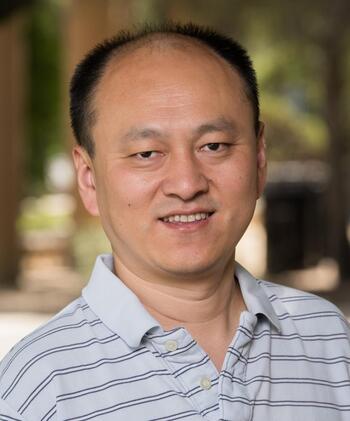Winter Seminar Series on China's Economy and Institutions: The Political Genesis of Local Government Debt in China with Prof. Jean Oi
Winter Seminar Series on China's Economy and Institutions: The Political Genesis of Local Government Debt in China with Prof. Jean Oi
Tuesday, March 9, 202111:00 AM - 12:15 PM (Pacific)
Register here: https://bit.ly/SCCEIwinterseries2021
Please join us for our winter seminar series of four lectures given by multidisciplinary faculty who are leading experts on China's economy and institutions. These lectures will cover discussion topics ranging from rural livelihood and environmental sustainability in China to talent and firm creation in China and will be moderated by Stanford Center on China's Economy and Institution co-directors Scott Rozelle and Hongbin Li.
Seminar 3: Tuesday, March 9, 2021 | 11:00 - 12:15 am Pacific Time
The Political Genesis of Local Government Debt in China with Professor Jean Oi, Stanford University
China’s rapidly growing local government debt (LGD) is now branded a “grey rhino,” a known threat that has received little attention. Why did Beijing let LGD get so out of hand? What are the sources of LGD? Oi will argue that LGD stems from a grand bargain between the center and the localities that was made to secure support for the 1994 fiscals reforms. This series of policy decisions institutionalized backdoor financing, creating a “win-win” solution that recentralized tax revenues to Beijing while countering the downsides of fiscal recentralization for the localities. The cost, however, was that China’s economic growth model was increasingly undergirded by mounting LGD, with little transparency and control by the center.
Image
 About the Speaker
About the Speaker

Jean C. Oi is the William Haas Professor of Chinese Politics in the Department of Political Science and a Senior Fellow of the Freeman Spogli Institute for International Studies (FSI) at Stanford University. She also directs the China Program at the Walter H. Shorenstein Asia-Pacific Research Center at FSI and is the founding Lee Shau Kee Director of the Stanford Center at Peking University. Oi has published extensively on political economy and the process of reform in China. Recent books include Fateful Decisions: Choices That Will Shape China's Future, co-edited with Thomas Fingar (2020); and Zouping Revisited: Adaptive Governance in a Chinese County, co-edited with Steven Goldstein (2018). Recent articles include “China’s Challenges: Now it Gets Much Harder,” co-authored with Thomas Finger, The Washington Quarterly (Spring 2020); and “After COVID-19: Rebooting Business in China,” co-authored with Jennifer Choo, Christopher Thomas, and Xue (Xander) Wu, The Diplomat (July 2020). Her current research continues to explore central-local relations, including local government debt. She is also in the early stages of a project on China’s Belt and Road Initiative.
Seminar Series Moderators:

Scott Rozelle holds the Helen Farnsworth Endowed Professorship at Stanford University and is Senior Fellow in the Food Security and Environment Program and the Shorenstein Asia-Pacific Research Center, Freeman Spogli Institute (FSI) for International Studies. For the past 30 years, he has worked on the economics of poverty reduction. Currently, his work on poverty has its full focus on human capital, including issues of rural health, nutrition and education. For the past 20 year, Rozelle has been the chair of the International Advisory Board of the Center for Chinese Agricultural Policy, Chinese Academy of Sciences (CAS). In recent years Rozelle spends most of his time co-directing the Rural Education Action Project (REAP). In recognition of this work, Dr. Rozelle has received numerous honors and awards. Among them, he became a Yangtse Scholar (Changjiang Xuezhe) in Renmin University of China in 2008. In 2008 he also was awarded the Friendship Award by Premiere Wen Jiabao, the highest honor that can be bestowed on a foreigner.

Hongbin’s research has been focused on the transition and development of the Chinese economy, and the evidence-based research results have been both widely covered by media outlets and well read by policy makers around the world. He is currently the co-editor of the Journal of Comparative Economics.
Register Here
Register once to receive the Zoom meeting link that will be used for all lectures in this series.
